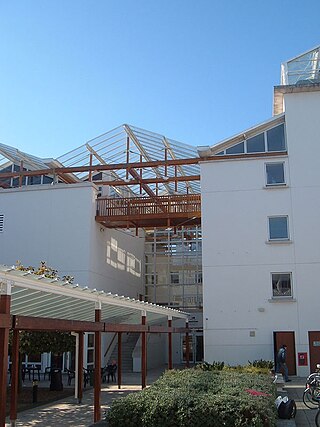
Sir Colin Stansfield Smith, was a British architect and academic. He played over 100 games of first-class cricket in the 1950s.
Cricket, and hence English amateur cricket, probably began in England during the medieval period but the earliest known reference concerns the game being played c.1550 by children on a plot of land at the Royal Grammar School, Guildford, Surrey. It is generally believed that cricket was originally a children's game as it is not until the beginning of the 17th century that reports can be found of adult participation.

Brigadier Arthur Jervois Turner, was an English cricketer, rugby union player and British Army officer. A right-handed batsman, right-arm underarm medium pace bowler and occasional wicket-keeper, he played first-class cricket for various teams between 1897 and 1914, predominately for Essex. He also played for the Egypt national cricket team. His other sporting interests included Rugby Union, and he played for Blackheath F.C. and Kent at that sport.
Stephen Cox Newton was an English cricketer who represented, and captained, Somerset County Cricket Club in the late 19th century. During a 14-year first-class cricket career, he also represented Cambridge University, Middlesex and the Marylebone Cricket Club (MCC).
Joseph McCormick was an English amateur cricketer who played first-class cricket from 1854 to 1866.
Robert Turner King was an English amateur cricketer who played first-class cricket from 1846 to 1851.
Alfred Henry Evans was an English first-class cricketer and educator. Considered one of the best fast bowlers in England at the time, Evans played in 44 first-class matches between 1878 and 1885, taking over 200 wickets. He would later became a schoolmaster at Winchester College and would found Horris Hill School in 1882, where he was headmaster until 1920.
Rev. Archibald Hugh Conway Fargus MA was an English cricketer who was a right-handed batsman who bowled right-arm fast. He was also a scholar and clergyman and served in the Royal Navy.

Robert Christian Ramsay was an English-born pastoralist and businessman who worked in Queensland, Australia. During the late 1880s, he was also an amateur cricketer who played for Harrow, Cambridge University and Somerset. In 1882, he also played for the Gentlemen of England under W.G. Grace.

John Henry Payne was an English rugby union footballer who played in the 1880s. He played at representative level for England, and Lancashire (captain), and at club level for Broughton RUFC, as a half-back, e.g. fly-half, or scrum-half, he died in Victoria Park, Manchester.
Edward John Craig is an English academic philosopher, editor of the Routledge Encyclopedia of Philosophy, and former Knightbridge Professor of Philosophy at the University of Cambridge. He is also a former cricketer at first-class level: a right-handed batsman for Cambridge University and Lancashire.

Sir Joseph Montagu Cotterill, CMG, FRCSEd, RAMC was a surgeon who as a young man played first-class cricket and made one appearance for England. He became a surgeon in Edinburgh and was President of the Royal College of Surgeons of Edinburgh.
Richard Stoakes Jones was an English lawyer and a cricketer who played first-class cricket for Cambridge University, Kent and Marylebone Cricket Club. He was born at Dymchurch, Kent and died there as well.

Oswald Philip Lancashire was an English cricketer who played first-class cricket for Lancashire, Cambridge University and the Marylebone Cricket Club (MCC), plus other amateur sides, between 1878 and 1888. He was also a successful Association football player. He was born at Newton Heath, Manchester and died at West Didsbury, also in Manchester.
Vernon Kirk Armitage was an English first-class cricketer who played in one match for Cambridge University Cricket Club in 1864. Cricket websites indicate that he was born at Hope Hall, Eccles, then in Lancashire; a history of Salford, however, indicates that his father did not purchase Hope Hall until 11 years after Vernon's birth, and lived at Pendleton before 1853. Vernon Armitage died at Birkdale, also then Lancashire.
John Brown Payne was an English first-class cricketer.






